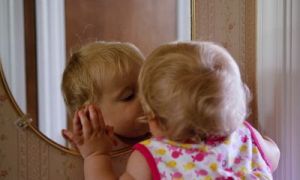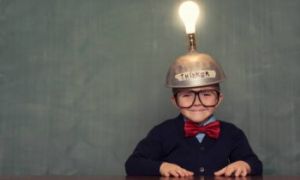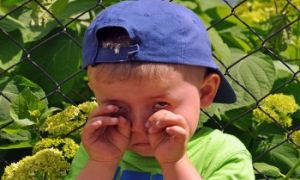

Sensory Play is an early childhood educational approach that allows children to use all their senses when exploring their learning environment. The following article provides the benefits of sensory play and how you can incorporate it into the learning environment.
Routines and rituals are an integral aspect of growing up. They not only teach young children the skills needed to function in the adult world but impart a measure of control over their immediate environment. The following article provides strategies for using rituals and routines in an early childhood setting.
Empathy can be understood as the experience of understanding another person's condition from their perspective. The trait is considered one of the most important life skills that children can learn since it not only nurtures interpersonal relationships, thereby making for a strong support network in adulthood but has been linked to positive life outcomes too. The following article provides strategies for promoting empathy in children.
Project-based learning is an educational approach in which students acquire knowledge and skills by working for an extended time on a project or task. The following article provides information on What Is Project Based Learning, the Key Elements of Project Based Learning and the fundamentals of project-based learning and how you can use it in the learning environment.
While the function of a learning curriculum is to lay out what is going to be taught to children, pedagogical approaches covers all the ways how such a curriculum can be taught. In the early childhood context, the most effective pedagogical approaches are learner centered, active and permit a scaffolding of learning. The following article provides information on EYLF and Pedagogical Approaches, Examples Of Pedagogical Approaches, How To Implement Pedagogical Approaches In Early Childhood, and more.
Activities and experiences both play crucial roles in early childhood education, but they have distinct characteristics. The following article provides information on What Are Activities, What Are Experiences, Examples Of Experiences, Examples Of Activities, Integrating Both in Early Childhood Education and more.
Effective communication is key to building positive relationships with children and facilitating their learning. However, if our words are to have the desired impact, they need to be adequately complemented with non-verbal cues. This is even more pertinent in the early childhood contexts when young children are yet to fully acquire language. The following article provides strategies for using non-verbal communication with children.
When children are confident, it means they can recognise the things they are good at and are happy to try out new things. Confidence is so important that it forms part of two learning outcomes in the EYLF Outcome 1.3: “Children develop knowledgeable and confident self-identities” as well as Outcome 4: “Children are confident and involved learners”. The following article provides strategies that Educators can use to build confidence in children so that they can achieve the best life and learning outcomes.
As part of their educational programmes, early education and care services may be situated in or travel to bush environments where it is known that snakes may be active and present. Although they are more common in the spring or summer, snakes can be found throughout the year, especially on sunny days. The following article provides information on What Attracts Snakes Into The Outdoor Area or Early Childhood Service, How Can We Snake-proof Our Service, Strategies to Implement To Minimise The Risk Of Snakes and more.
Children are naturally curious about their surroundings; this is most often expressed in the way they tinker with things, explore what happens next and ask questions about the world. Such innate inquisitiveness provides the ideal base to build hands-on exploration activities so that children not only have fun discovering but learn concepts and theories by applying them in real life. The following article provides information on leading children in hands-on exploration.
 Toddlers have a greater understanding of the world around them by this stage. Their cognitive development (also known as intellectual development and thinking skills) continues… Read More
Toddlers have a greater understanding of the world around them by this stage. Their cognitive development (also known as intellectual development and thinking skills) continues… Read More
 Infants begin to develop trust when parents begin to fulfil their needs. Such as changing an infant's nappy when needed, feeding on request and holding… Read More
Infants begin to develop trust when parents begin to fulfil their needs. Such as changing an infant's nappy when needed, feeding on request and holding… Read More
 Beginning at birth the construction of thought processes, such as memory, problem solving, exploration of objects etc, is an important part of an infant’s cognitive… Read More
Beginning at birth the construction of thought processes, such as memory, problem solving, exploration of objects etc, is an important part of an infant’s cognitive… Read More
 Toddlers want to do more on their own and do not like it when you begin to establish limits on their behaviour. Tantrums can become… Read More
Toddlers want to do more on their own and do not like it when you begin to establish limits on their behaviour. Tantrums can become… Read More
 Your preschooler is now able to focus their attention more accurately and is less influenced by distractions. The intensity of questions increase as your child… Read More
Your preschooler is now able to focus their attention more accurately and is less influenced by distractions. The intensity of questions increase as your child… Read More
 John Dewey is often seen as the proponent of learning by doing – rather than learning by passively receiving. He believed that each child was active,… Read More
John Dewey is often seen as the proponent of learning by doing – rather than learning by passively receiving. He believed that each child was active,… Read More
 Toddler advance and gains new skills in Gross Motor Development milestones achieved throughout earlier years. Co-ordination and challenges that could not be performed before such… Read More
Toddler advance and gains new skills in Gross Motor Development milestones achieved throughout earlier years. Co-ordination and challenges that could not be performed before such… Read More
 Erik Erikson developed a psychosocial theory to understand how we each develop our identities through eight stages of psychosocial development from infancy to adulthood. The… Read More
Erik Erikson developed a psychosocial theory to understand how we each develop our identities through eight stages of psychosocial development from infancy to adulthood. The… Read More
 At this point preschoolers begin to interact effectively with others. Play becomes more innovative and organized and “boyfriend” or “girlfriend” begins to emerge. Preschoolers have… Read More
At this point preschoolers begin to interact effectively with others. Play becomes more innovative and organized and “boyfriend” or “girlfriend” begins to emerge. Preschoolers have… Read More
 From now, babies begin to identify and respond to their own feelings, understanding other's feelings & needs and interact positively with others. A baby's social and… Read More
From now, babies begin to identify and respond to their own feelings, understanding other's feelings & needs and interact positively with others. A baby's social and… Read More

From now, babies begin to identify and respond to their own feelings, understanding other's feelings...
See more...
Brain development is directly related to cognitive development which describes how a child’s intellect grows...
See more...
It's always difficult to bring up behavioural issues with parents, it can be nerve wrecking...
See more...© 2009-2025 Aussie Childcare Network Pty Ltd. All Rights Reserved.

